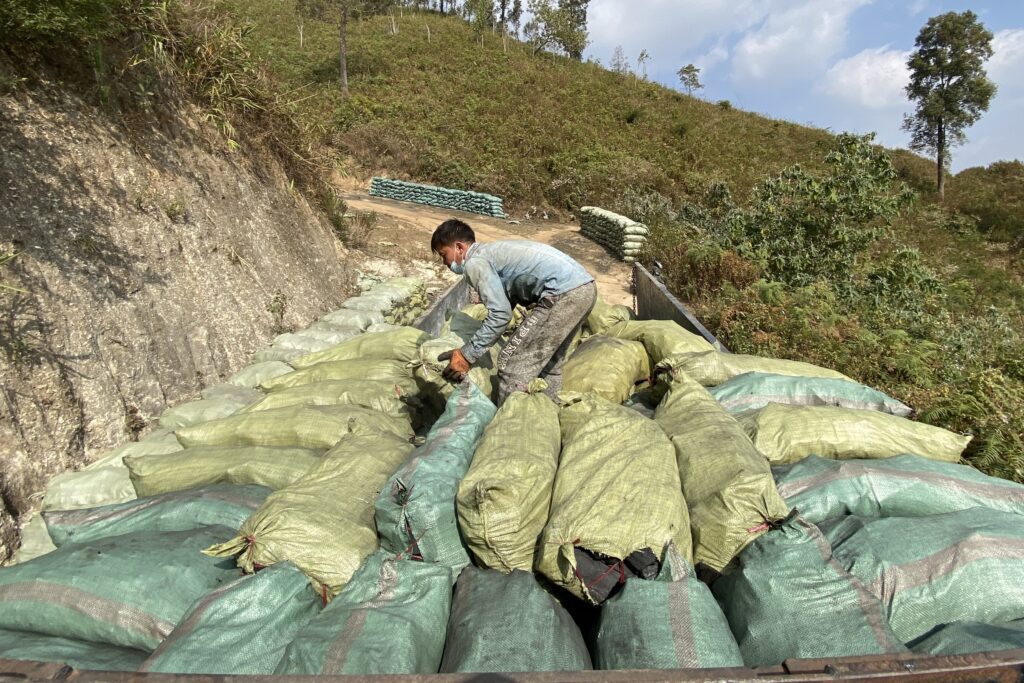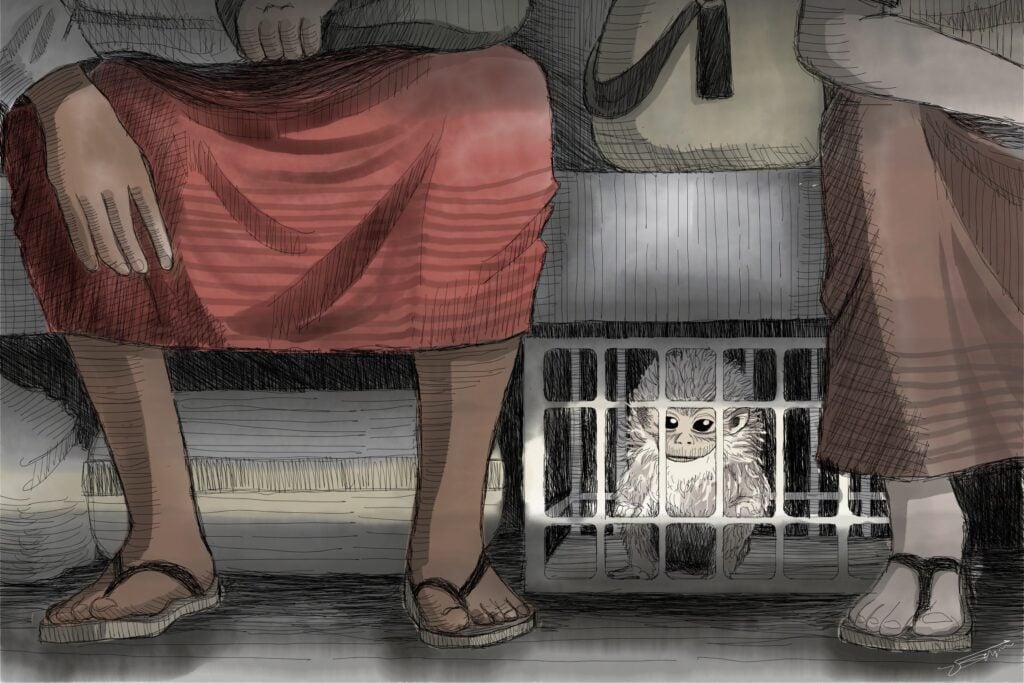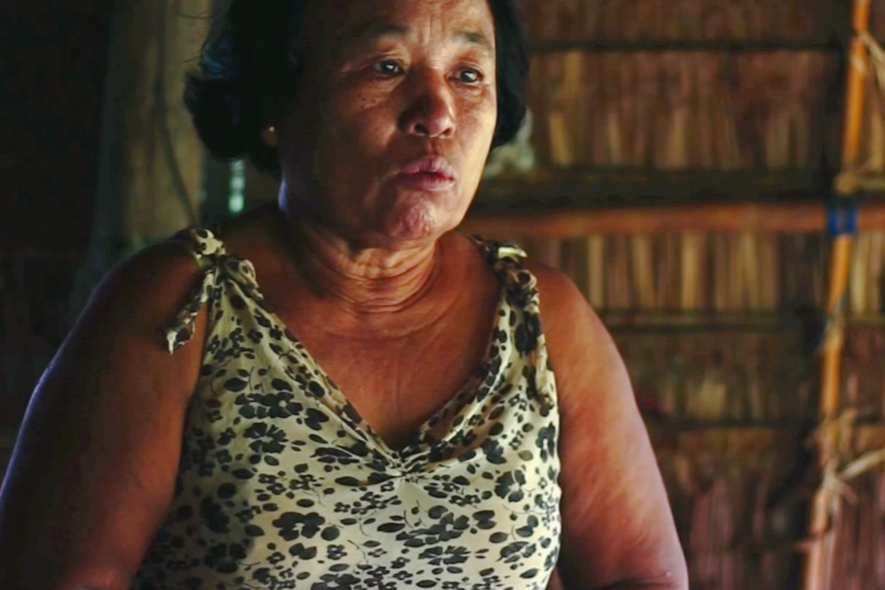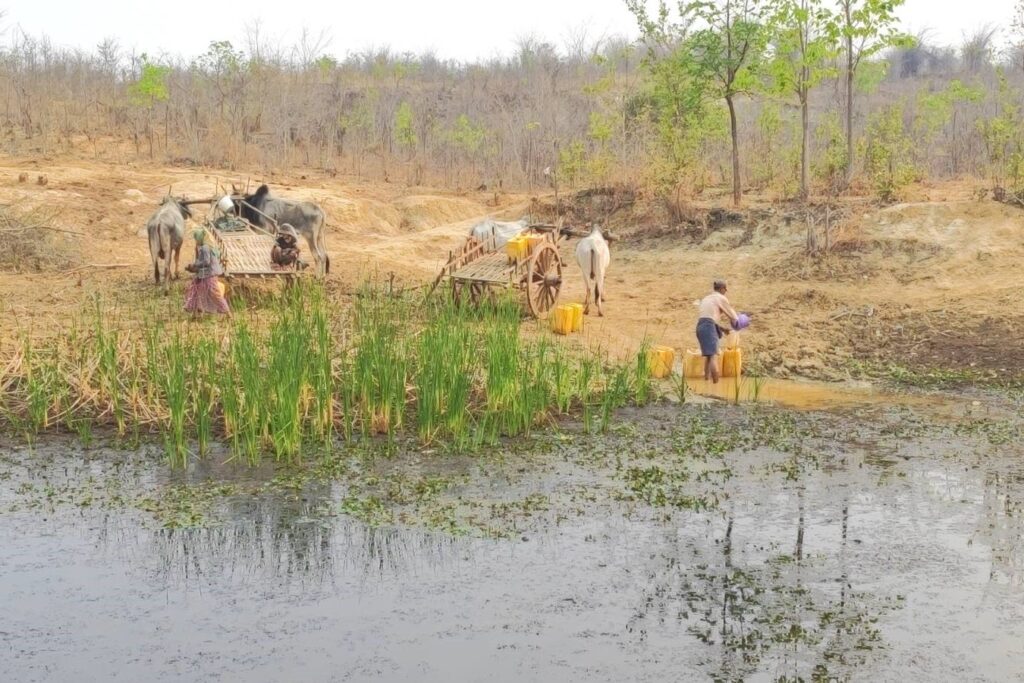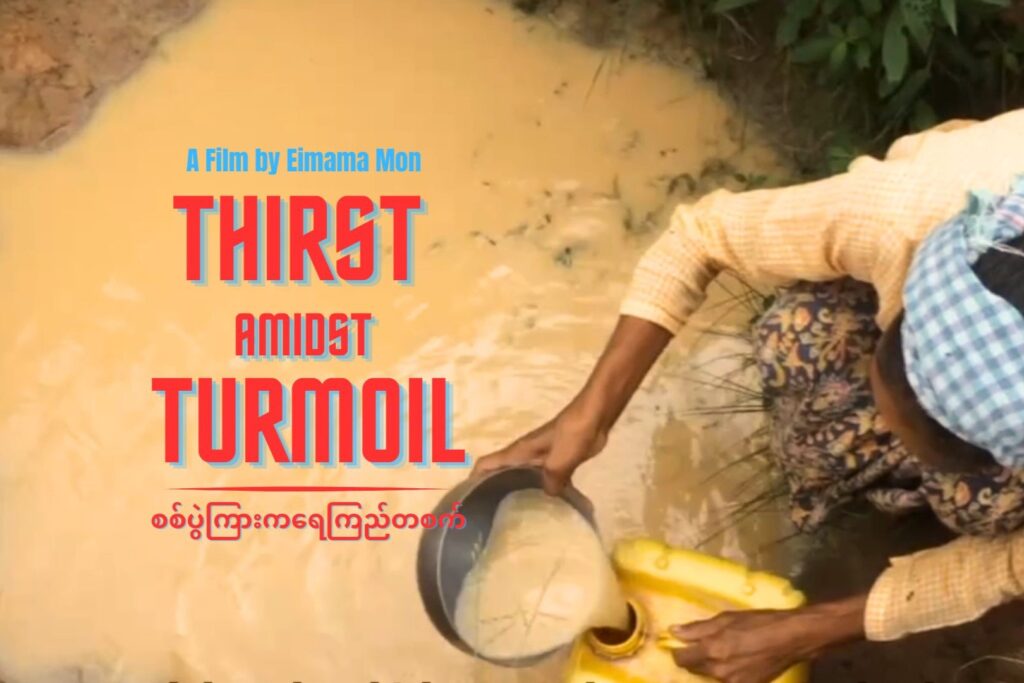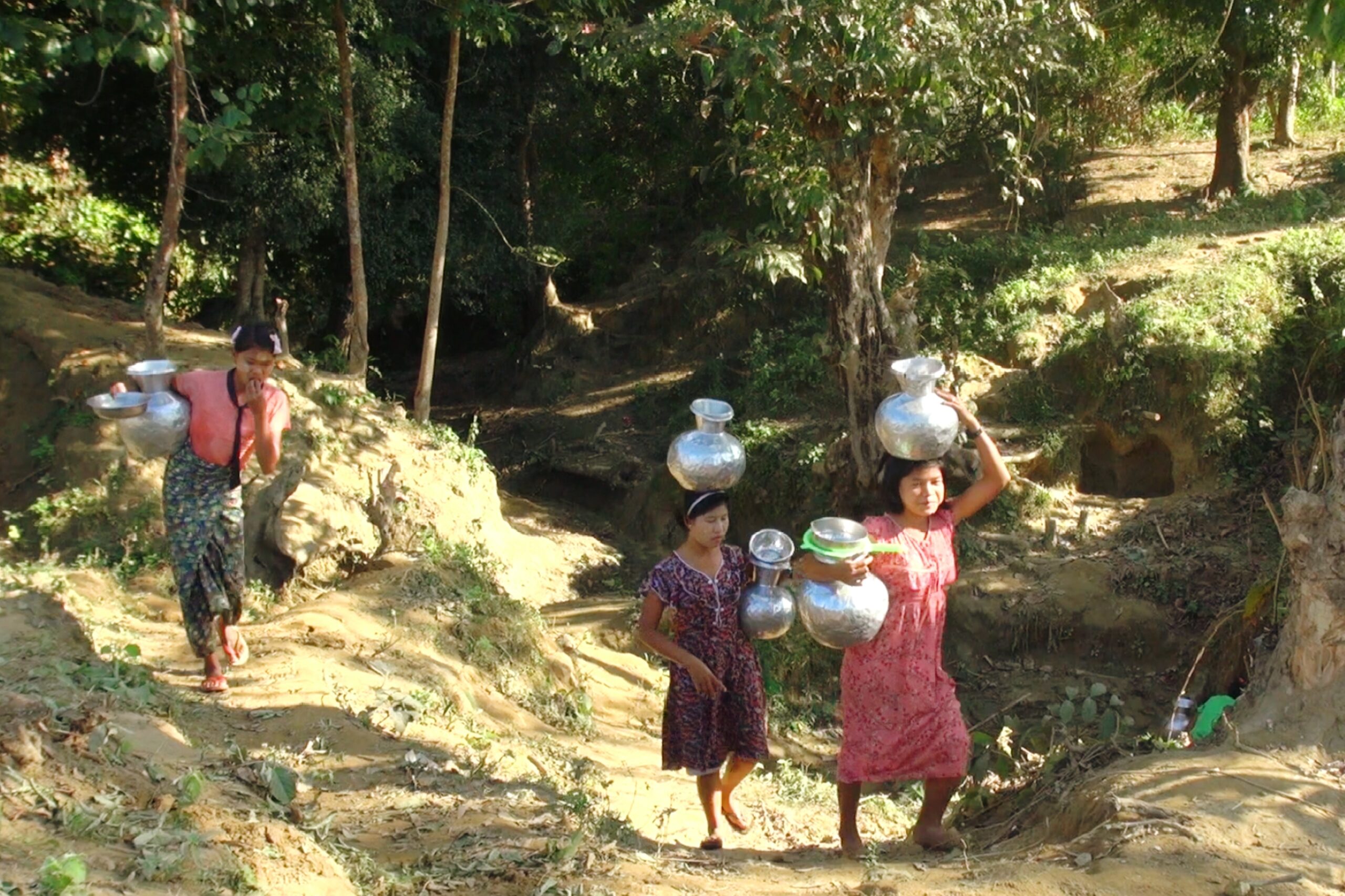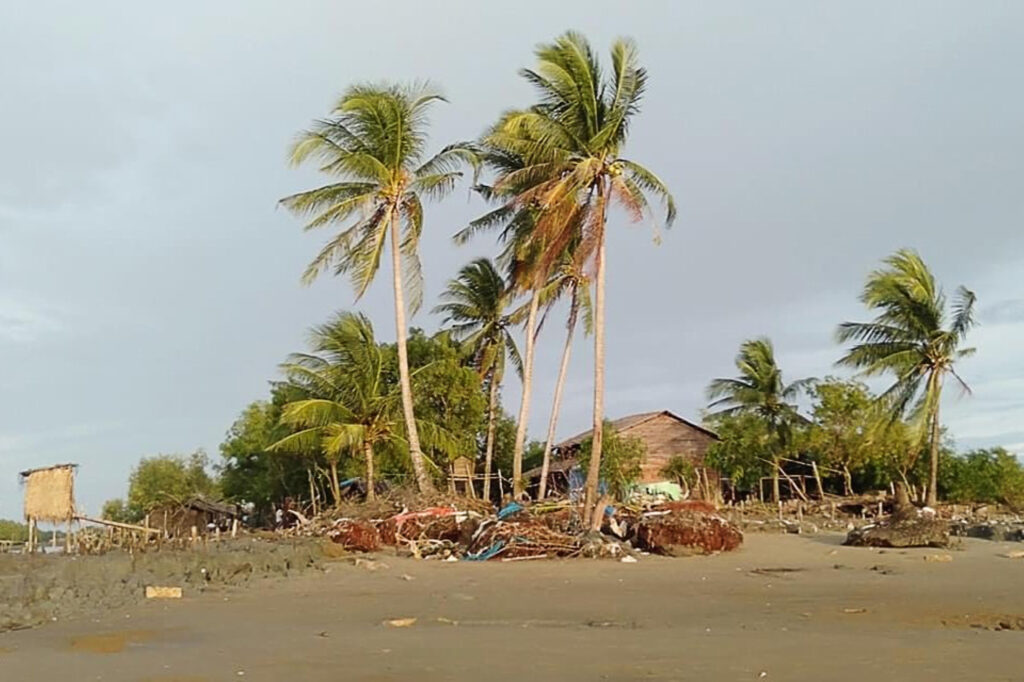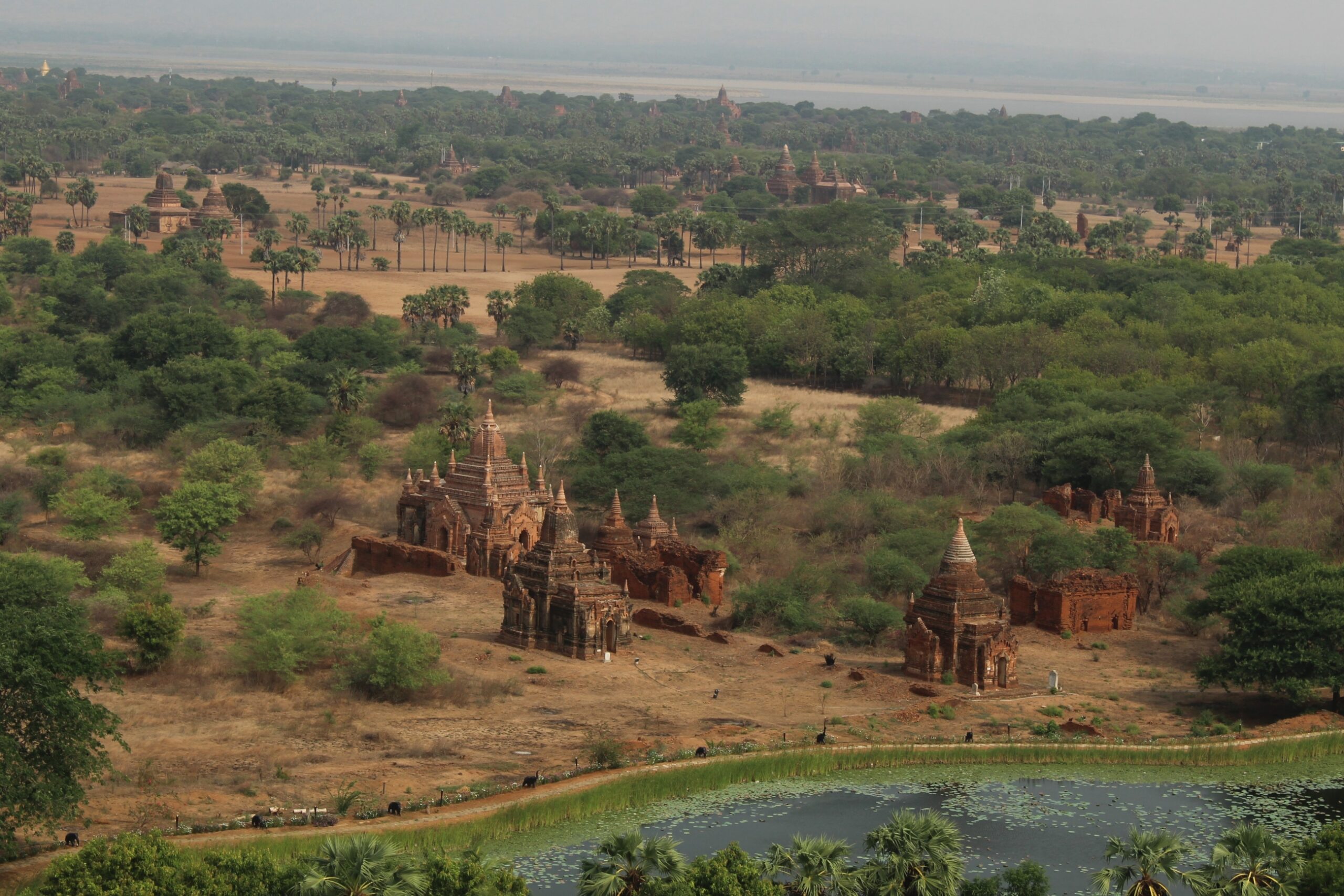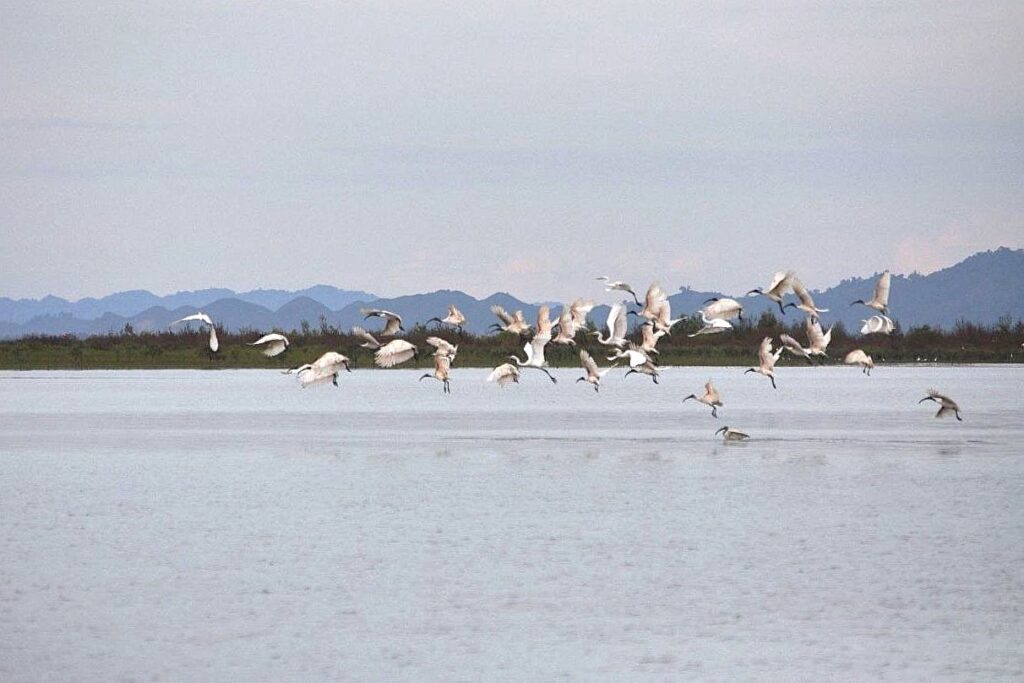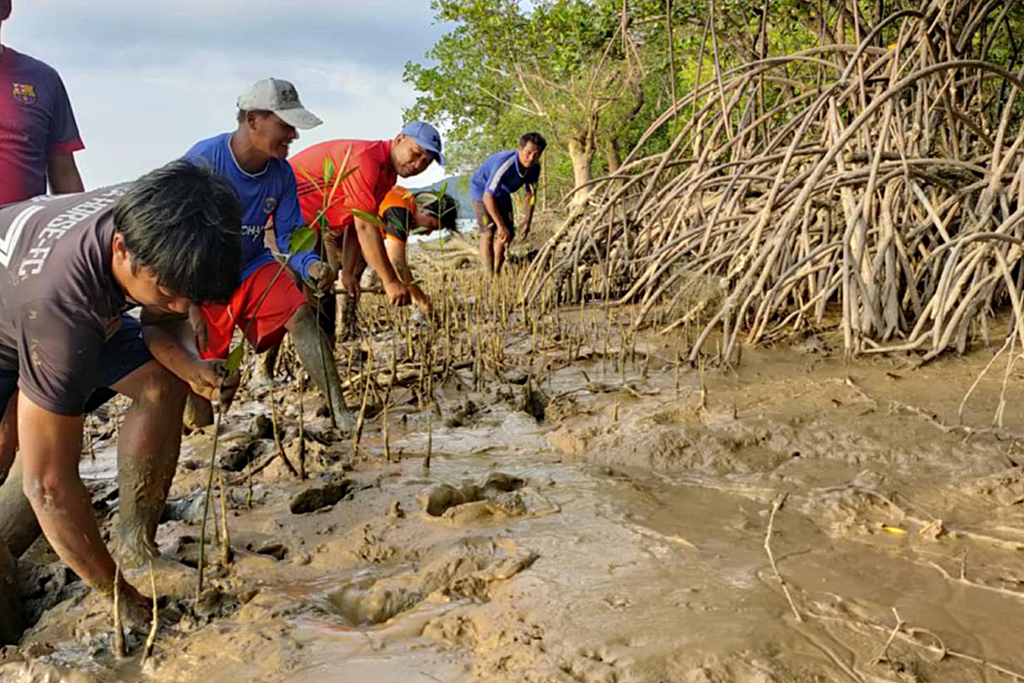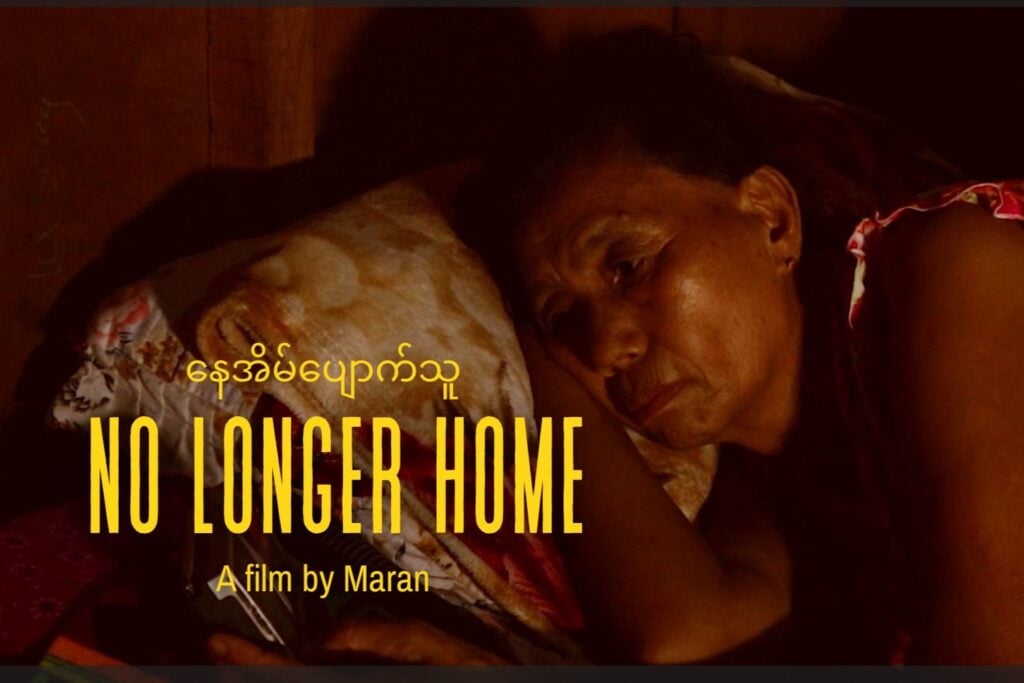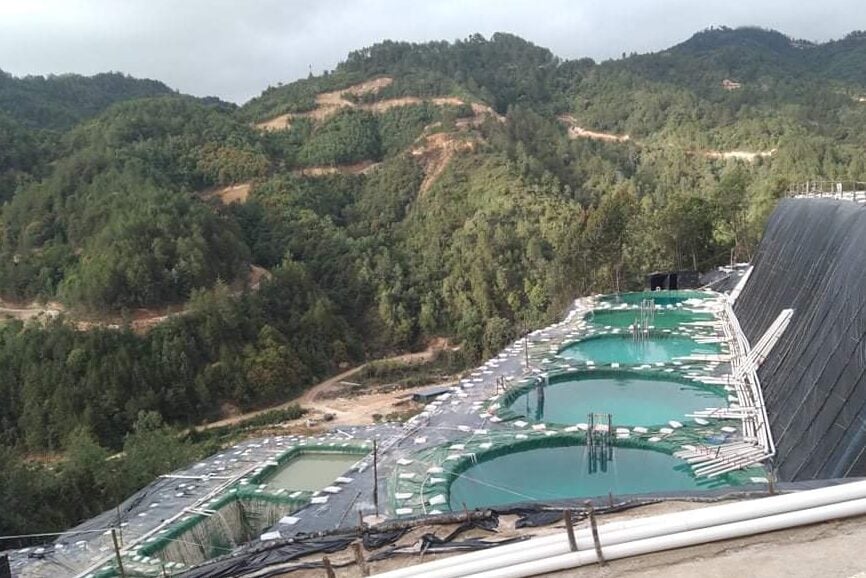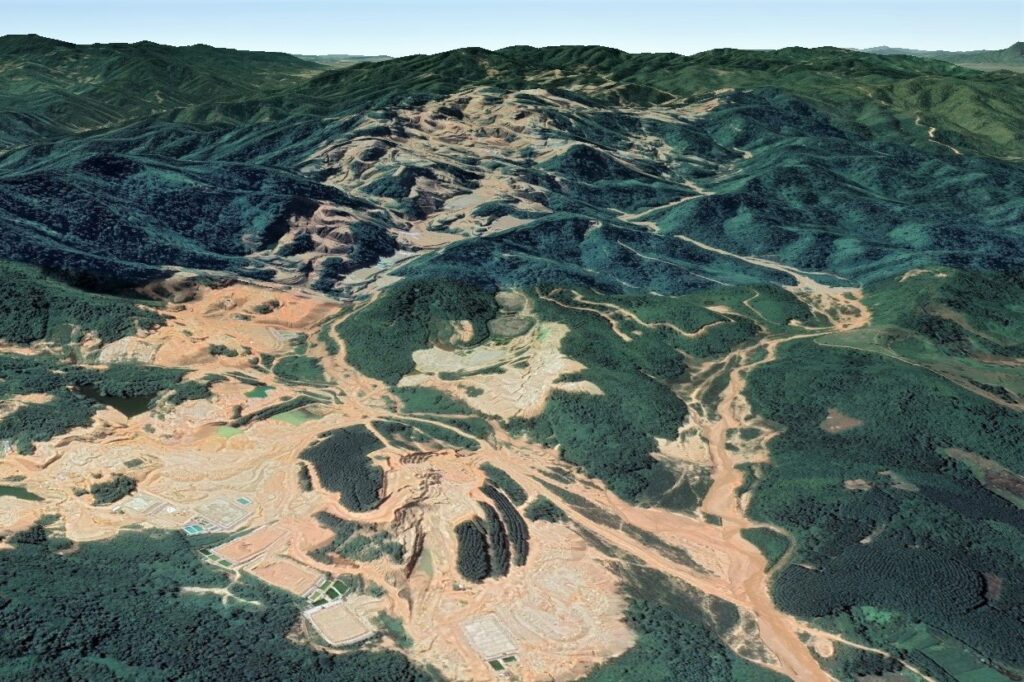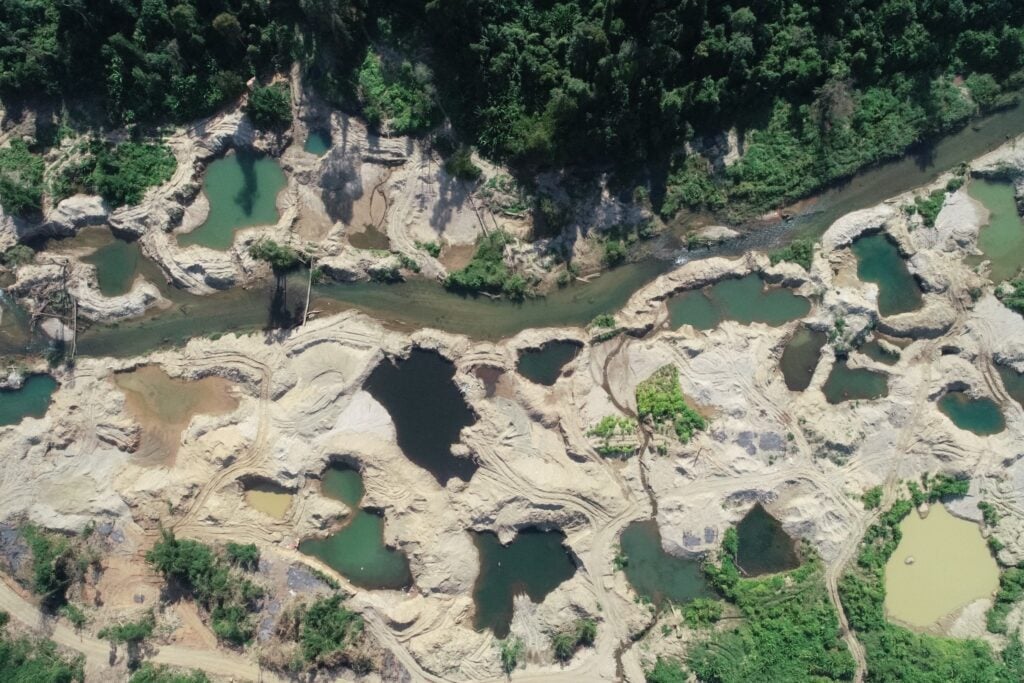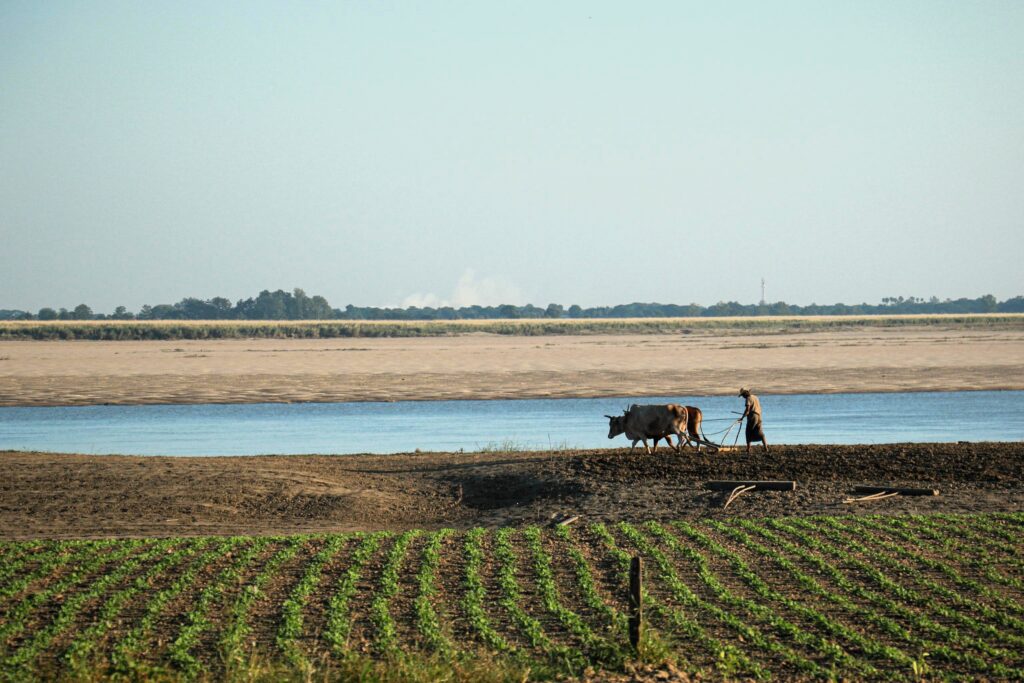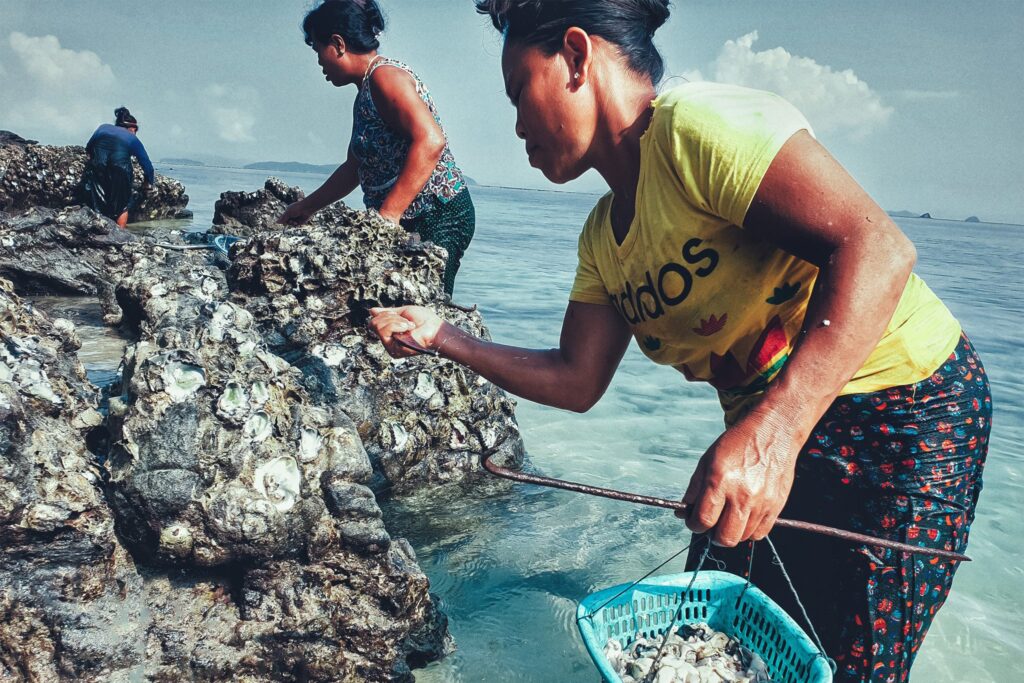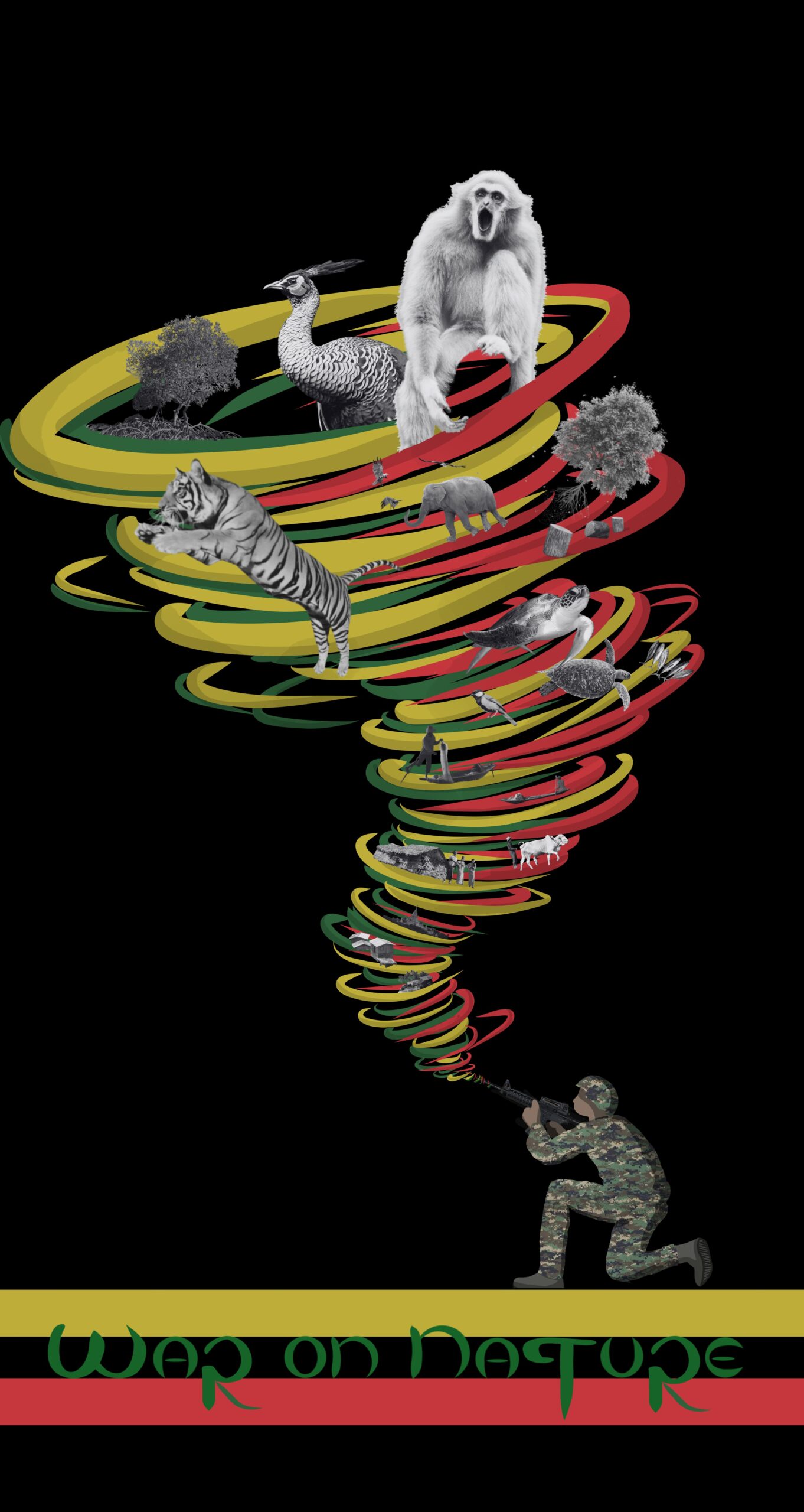
How four years of Myanmar’s brutal civil war is destroying land and natural resources
Dedicated to all Myanmar’s brave journalists who keep the outside world informed
Published on February 3, 2025
As Myanmar enters its fifth year since the military coup on February 1, 2021, the country has descended into a bloody civil war and its environment has been devastated.
While Senior General Min Aung Hlaing has mentioned holding elections, no concrete date has been set, and the intensifying civil war shows no sign of abating, with the junta losing control of large parts of the country. Many doubt an election – if held – would be free or fair or represent the will of the people.
The civil war has become more intense with the rise of many armed groups, including the Three Brotherhood Alliance, which has launched large-scale offensives against the military. In response, airstrikes and artillery shelling by the junta have devastated entire regions, not only displacing people, but also taking a heavy toll on Myanmar’s rich natural resources.
Once seen as a frontier of untapped wealth – including minerals, timber and other valuable resources – these assets are now being exploited to fund the war or to generate profits for a select few.
Despite their limited freedom, Myanmar’s journalists – many now living in exile – continue to document their country’s environmental transformation, as well as the human tragedies.
Citizen journalists still inside the country have been uncovering the hidden costs of war: from deforested hills to poisoned rivers, from displaced communities to the erosion of local conservation efforts.
To mark their dedication in extremely difficult circumstances, the Mekong Eye team has compiled their reports and investigations that illustrate the environmental disasters caused by the civil war, as well as the resilience of those who remain committed to protecting their homeland.
While many argue that democracy is a prerequisite for a sustainable environment, those on the front lines cannot afford to wait.
They need urgent support from the international community to continue their conservation work, to safeguard Myanmar’s remaining natural resources and to ensure that the country’s environmental future is not lost to war.
While the conflicts in Ukraine and the Middle East dominate world headlines, Myanmar’s “forgotten” war rages on, and a small band of dedicated journalists take great risks to tell the outside world of the tragedies unfolding in their country. These are their stories.
— Rising deforestation and illegal wildlife trade —
Myanmar’s forests and wildlife are among its greatest natural treasures, but they have been steadily lost to human activities, from large-scale deforestation for mining to illegal charcoal production and the booming online wildlife trade.
However, the issue is far more complex than it appears. While powerful elites and armed groups profit from resource exploitation, many villagers are also driven to participate out of sheer necessity.
With jobs scarce and farmland destroyed by war, some have turned to illegal logging, poaching and other environmentally harmful activities, simply to survive.
Out at sea, the war has also taken its toll on marine life. A reporter documenting coastal communities found that sea turtle populations are in sharp decline, as villagers can no longer access traditional turtle sanctuary areas due to military control.
The once-thriving conservation efforts that protected these endangered species have been disrupted, leaving marine ecosystems even more vulnerable.
— Water scarcity and climate vulnerability —
In conflict zones, villagers struggle to access clean and hygienic water as battles cut off their routes to natural water sources.
Women, who are traditionally responsible for collecting water, face the greatest hardships, often traveling long distances in dangerous conditions to secure water for their families.
Myanmar, one of the most climate-vulnerable countries in the world, has also fallen behind in global climate discussions.
Since the coup, the country has been absent from UN climate conferences like COP, missing out on opportunities for international climate finance and technical support.
With no coordinated climate strategy, communities are left to fend for themselves against worsening floods, droughts and extreme weather events.
— Conservation efforts suspended —
Beyond environmental destruction, the war has also severely impacted Myanmar’s human resources. The turmoil and the imposed military conscription law have driven many talented and young professionals out of the country, creating a brain drain that weakens both the economy and conservation efforts.
Civil society groups that once played a crucial role in protecting Myanmar’s forests, rivers and biodiversity have been forced to halt or scale back their activities due to security risks.
Some continue their work in secret, but their safety remains a pressing concern. Without the presence of local conservationists, Myanmar’s natural resources risk being further exploited by unchecked development and illicit industries, especially under the weakened rule of law.
— Booming extractive industries and land degradation —
Illegal mining in Myanmar has surged – from the jade-rich hills of northern Kachin State to the gold-rich rivers of Tanintharyi region in the south, where once-pristine landscapes now resemble barren moonscapes.
Large-scale extraction, often carried out by companies linked to both the military and resistance groups, has severely degraded soil quality, deforested vast areas and polluted rivers with toxic waste.
The expansion of extractive industries has not only stripped the land of its fertility, but has also forced thousands of people from their homes. Many displaced communities now live in makeshift camps, unable to return home due to the ongoing conflict and the environmental degradation.
With weakened environmental laws, the widespread burning of fields – a long-standing issue in Myanmar and the region – has combined with seasonal agricultural fires in neighboring Mekong countries to create severe transboundary haze.
This smog, thick with pollutants, has worsened respiratory illnesses and further degraded air quality, particularly in urban centers like Mandalay and Yangon.
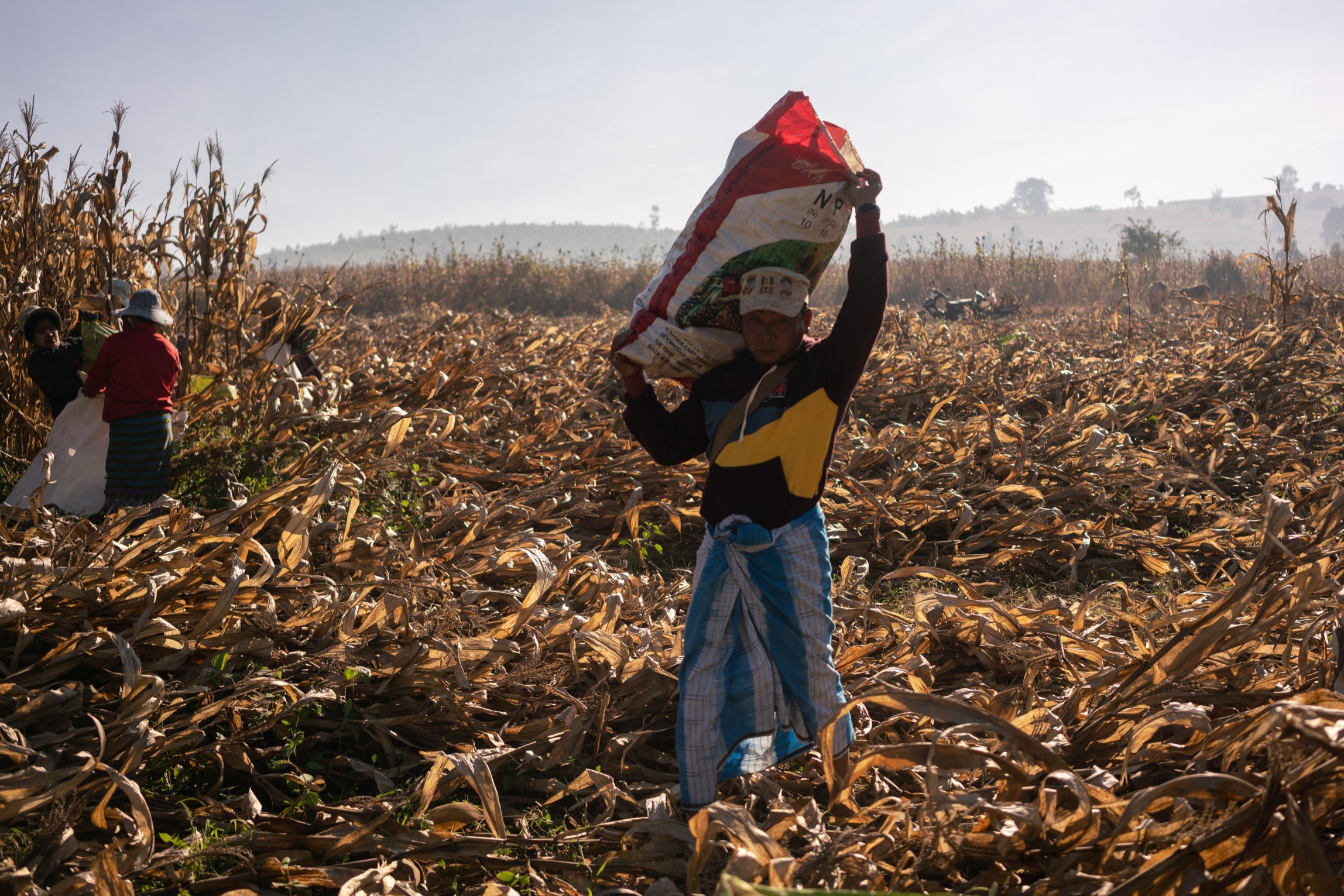
Myanmar’s economic downturn forces farmers to burn fields
By Nang Su Thiri Win, Thanet Saengthongsrikamon, Tin Maung Htwe and Pyae Sone Aung
— Doing business amid the bloodshed —
As the military wages a bloody war against its own people, there have been growing calls for foreign businesses to withdraw from Myanmar.
Engaging in business with the military-controlled government risks funneling funds into the war effort, potentially financing weapons and military operations. While some energy companies have pulled out in response to international pressure, other companies continue their operations.
One such example is Myanmar’s pearl farming industry in the country’s southern coastal regions. Despite the ongoing conflict, pearl farms continue to supply luxury markets abroad, raising ethical concerns about whether profits from these high-value exports are benefiting military-linked entities.
The persistence of such industries highlights the challenges of enforcing economic pressure on the regime.
Meanwhile, illegal cattle smuggling continues to thrive along Myanmar’s borders with China and Thailand, driven by the high regional demand for beef. This trade not only threatens animal health, but also poses serious risks to humans, as certain cattle-borne diseases can be transmitted to people, potentially leading to outbreaks of illness.
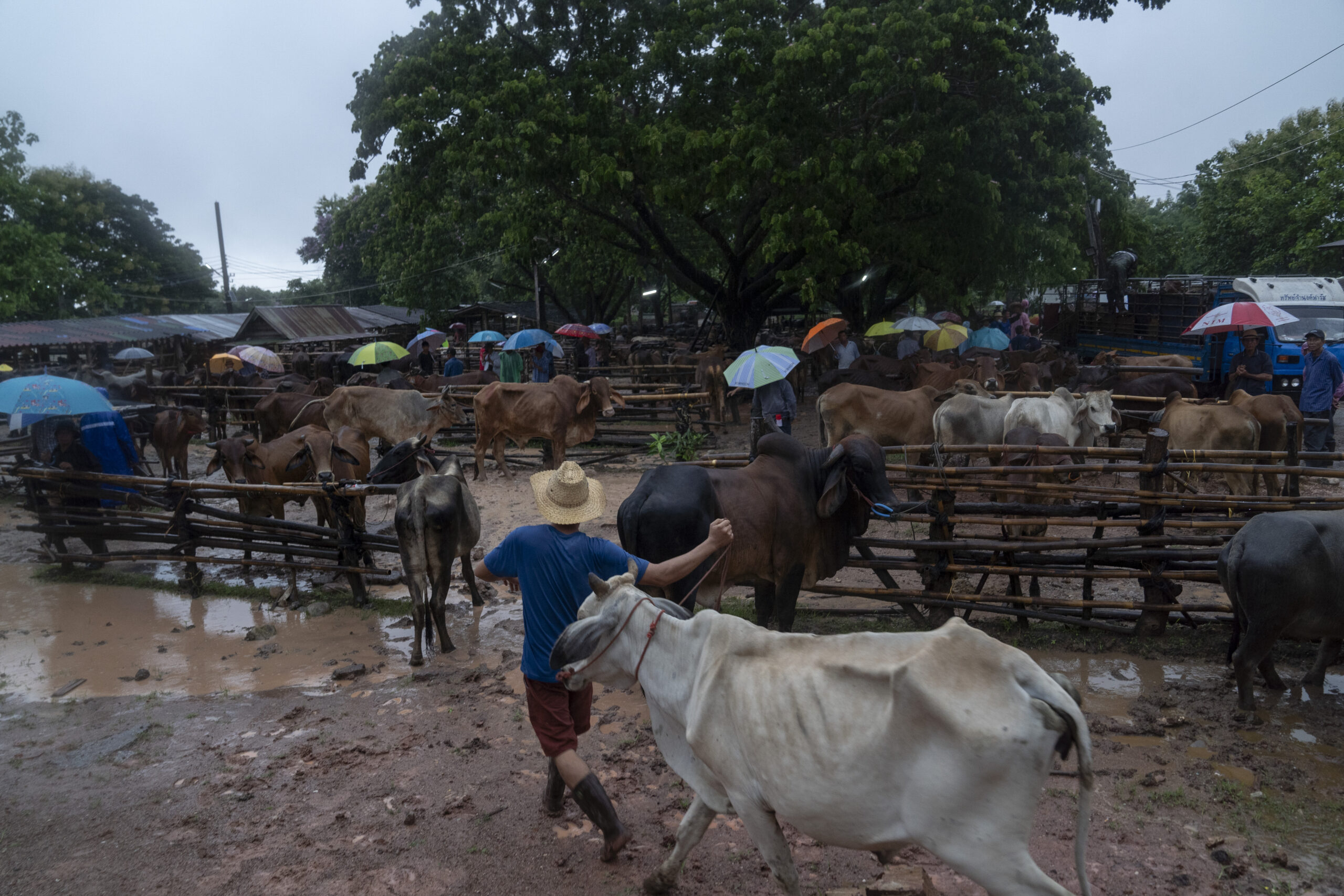
Cattle hustle: Smuggling surges in the shadow of war
By Kannikar Petchkaew, Gebu, Konlaphat Siri, Aung Myo Htut and Vũ Thanh
Many environmental and climate stories in Myanmar remain untold. Some have been heard but could not be reported due to concerns for journalists’ safety. Yet, many journalists continue to pursue these stories, even at great personal risk.
Others choose to stay despite the hardships because their entire history is rooted in the country—their childhood, their families, their loved ones, and the memories of a peaceful home. They continue to tell stories of the land they cherish, hoping it can be saved from war.
These stories were supported by the Internews’ Earth Journalism Network as part of a series of projects aimed at enhancing both the quantity and quality of environmental reporting in the Mekong region.
* The banner graphic was created using Canva Pro.


